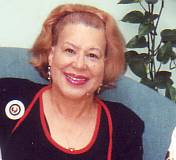
Mary Lee Brady, Ph.D. 


| | Letitia Hemings Monroe, born abt 1806 James Hemings Monroe Trotter was so named by his mother for a reason; and we suspect her reasoning was that she was descended from President James Monroe. In those days, long before the modern welfare generations toward nothingness, ... mothers held dear their "hope chests" they were "somebody" and names mattered in choosing one for children. It is almost inconceivable that Sarah (Sally) Hemings, her sisters, brothers, aunts, uncles and cousins at Monticello, ... would not know or disclose to Madison and his siblings and cousins the existence of Thenia Hemings. 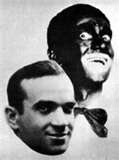
Contrary to means and methods described by most historians, slaves in the ante-bellum south were not uncaring about "the least of us" in distant locations, ... including Africa and Mississippi where tens of thousands of slaves in Virginia had known relatives "sold down river where the cotton was high and life never easy" ... excepting in a Al Jolson song fest. Al Jolson and hundreds of other Black and White entertainers were able to profit from the well-known antidotes and popularity of Black minstrels on the Mississippi and Ohio River boats. Many of them, especially Louis Armstrong were legendary even during their lifetimes, ... including Bill Robinson (a Virginia born Robinson) in their ability to entertain crowds with dance and song and get paid to do so. But, down river before New Orleans situated majestically at the mouth of the river, ... very few of the ex-slaves and sons and daughters of ex-slaves were living happily in the Mississippi River Delta. There is no record of Al Jolson, the Gershwin brothers or others who wrote and sang about it, ... ever spent a day or night there. Whatever the case might have been, the below extract from Wikipedia differs from our speculation that James Monroe was descended from Thenia Hemings, went to Ross and Pike Counties Ohio because he had relatives there, and met and married Virginia Isaacs who was one of those distant cousins. In fact, throughout most of the 19th century, it was not at all uncommon for Black or White 2nd, 3rd, 4th, 5th cousins to marry rather than risk of mating with complete strangers. 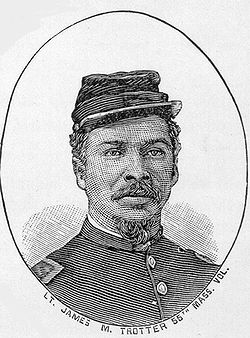
James Monroe TrotterFrom Wikipedia, the free encyclopediaJames Monroe Trotter (1842-1892) was born in Gulfport, Mississippi to slave owner Richard S. Trotter and a slave named Letitia. Letitia, along with her two sons, James Monroe and Charles Trotter, escaped on the Underground Railroad to Cincinnati , Ohio. James attended the Gilmer School in that city. He later received teacher education training at The Albany Academy in Athens County, Ohio. He used this training to teach in schools for colored persons in the Ohio counties of Pike and Muskingham, and in Ross county at Chillicothe. It was during his time in Chillicothe that he met his future wife Virginia Isaacs. Miss Isaacs was, according to family tradition, the great-grand daughter of President Thomas Jefferson and Mary Hemings, the sister of Sally Hemings. During the American Civil War, James traveled to Boston, Massachusetts where he enlisted in the Union Army, joining the 55th Massachusetts Volunteer Infantry USCT, Company K, in June 1863. He quickly rose from the rank of Private to Sergeant, and was ultimately promoted to 2nd Lieutenant, the first man of color to achieve this rank up to that time. Upon completing his military service he returned to Chillicothe where he married Virginia Isaacs in 1868. The couple moved to Massachusetts, where James became the first man of color to be employed by the United States Post Office (USPS) in Boston. They soon became the parents of three children, one of whom would later become the renowned Boston newspaper editor and human rights activist William Monroe Trotter. After years of service with the USPS, James found that he was not being promoted as were white co-workers of equal years of service. In an act of protest, he resigned rather than continue in an inferior position. A multi-talented man, James was the author of a book entitled Music and Some Highly Musical People, published in 1880. The book is the first comprehensive study of music ever written in the United States. It is still used today by those who are interested in music history and tracing the origins of music, especially African-American music. It has been reissued at least two times. The last time was in 1981. Another landmark accomplishment for him was his appointment by President Grover Cleveland to the office of Recorder of Deeds for the District of Columbia in 1887, the highest office to be held by a man of color at that time, and an honor shared by two other prominent men of color of that era, Fredrick Douglass (1881-1886) and Senator Blanche Kelso Bruce (1891-1893). 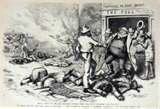
Many slaves in Alabama, Georgia and Mississippi had for at least two generations sought to learn about their relatives back in Virginia, ... where living was tough but cotton was not king and masters far less greedy and not likely to work men and women to their deaths. Many of the Virginia born slaves sold to ruthless planters in the rich black soil of the Mississippi delta, ... did not survive the march there nor the brutal conditions often imposed by White masters often migrated from Virginia. It is a chapter in Virginia's cultural history often ignored. Without Virginia, ... there would not have been much of what occurred from the loins of many Virginians like Robert E. Lee who claimed otherwise. Indeed, the Randolph children at Monticello had relatives in Mississippi and other states that visited often, played and talked to Hemings offspring. And, even the great man himself in pillow talk with Sally Hemings would no doubt have given her an honest answer about the where-abouts of her sister Thenia. Most historians have chose to believe that African-American names follow no pattern excepting that after slavery ended most chose to use names of their slave masters to establish their identity. 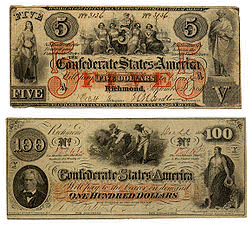
And, such may have been true in certain parts of the south where cowardly, old and feeble slaves remained; but, those leaving bondage prior to and during the Civil War had no such illusions about who they were. They almost certainly knew who their mother's said fathers were, good or bad. The issue for us is that so many young men like James, and fewer mothers such as Letitia were obviously not inferior type human beings depicted in Uncle Tom's Cabin, ... but rather of superior human behavior by any modern measure. In reality, men like James who volunteered and fought bravely to eradicate slavery in the hated south had little compassion for cowardice displayed by those slaves in his generation who were afraid to rebel against their masters. This attitude would dominate the life of his son's outrage against Booker T. Washington. Yet, we believe Booker T. saw the reality of millions of ex-slaves who did not have the courage, strength or fortitude to be rebels and depart the deep south, ... leaving it instead to those few who did and do for "the least of us." Educated and enlightened believers likely believe it has always been that way since at least the living testimony of Christ who died that others might live, not because they did anything to deserve it. |












